
SCARS Institute’s Encyclopedia of Scams™ Published Continuously for 25 Years

Authors:
• Vianey Gonzalez B.Sc(Psych) – Psychologist, Certified Deception Professional, Psychology Advisory Panel & Director of the Society of Citizens Against Relationship Scams Inc.
• Tim McGuinness, Ph.D., DFin, MCPO, MAnth – Anthropologist, Scientist, Director of the Society of Citizens Against Relationship Scams Inc.
Article Abstract
The Actor-Observer Bias sheds light on our tendency to attribute our own behavior to external factors while attributing others’ behavior to internal factors. In scenarios like arriving late or experiencing success or failure, we often overlook external influences when assessing others’ actions.
This bias significantly impacts interpersonal dynamics, especially in scams and for scam victims. Victims may blame themselves or externalize responsibility, hindering their recovery. Overcoming this bias involves acknowledging external factors and fostering empathy towards oneself and others.
By doing so, victims can navigate their experiences with resilience and promote solidarity within the scam-affected community.
This article is part of SCARS continuing commitment to helping the victims of scams (financial fraud) to better understand the psychology of scams. In other words, why are victims vulnerable?
Actor-Observer Bias – A Cognitive Biases That Causes Incorrect Comparisons With Other People
Actor-Observer Bias – Overview
Introduction: In the intricate web of human interactions, our understanding of behavior is often colored by biases that shape our perceptions of ourselves and others. One such bias, the Actor-Observer Bias, offers insight into how we interpret actions differently depending on whether we’re the participant or the observer. Recognizing and comprehending this phenomenon is pivotal for fostering empathy and navigating social dynamics effectively.
Understanding the Actor-Observer Bias: The Actor-Observer Bias refers to our tendency to attribute our own behavior to external factors while attributing the behavior of others to internal factors. Essentially, when we’re the ones taking action, we’re inclined to point to situational factors or external circumstances as influencing our behavior. Conversely, when we observe others’ behavior, we’re more likely to attribute it to inherent traits or characteristics, downplaying external influences.
Illustrative Examples:
- Interpreting Lateness: Consider arriving late for a meeting. As the actor, you might blame traffic or unforeseen delays, emphasizing external factors. However, when someone else is tardy, you might perceive it as a lack of punctuality or responsibility, focusing on internal factors rather than considering external circumstances.
- Success and Failure: In instances of personal success, we often credit our abilities or hard work (internal factors). Yet, if we fail, we tend to attribute it to external factors such as unlucky circumstances. Conversely, when assessing the success or failure of others, we may ascribe their achievements to luck, while failures are seen as reflective of their capabilities or character traits.
- Interpersonal Conflicts: During conflicts, individuals typically explain their own behavior by pointing to situational stressors or external pressures, justifying their actions. Meanwhile, they may view others’ actions as deliberate or indicative of their inherent nature, overlooking potential external influences.
Implications for Social Dynamics: The Actor-Observer Bias profoundly influences our interactions and relationships. By recognizing this bias, we can enhance our understanding of interpersonal dynamics and cultivate empathy. Through introspection and a willingness to consider external factors, we can mitigate the tendency to attribute behavior solely to internal traits, fostering more accurate perceptions and healthier relationships.
Actor-Observer Bias: Impact During Scams and on Scam Victims
During scams and in the case of scam victims, the Actor-Observer Bias can manifest in several ways:
- Victims Blaming Themselves: Scam victims may attribute their falling prey to a scam to external circumstances, such as persuasive tactics employed by the scammer or misleading information presented. However, when observing others who have been scammed, they might be more likely to attribute the victims’ actions to personal naivety or gullibility, rather than considering the sophisticated techniques used by scammers. This manifests as a tendency to compare themselves with other victims unfavorably or without compassion.
- Externalizing Responsibility: Scam victims often externalize responsibility for their actions, citing factors like financial desperation or emotional vulnerability as reasons for their involvement in the scam. On the other hand, when observing individuals who have been scammed, they may perceive them as careless or foolish, failing to recognize the broader societal and psychological factors at play.
- Attributing Motives: Victims may rationalize their behavior by emphasizing external pressures or promises made by scammers, while viewing others who have fallen victim as negligent or easily manipulated. This differential attribution of motives can lead to victim-blaming attitudes and hinder empathy and support for those who have been scammed.
- Recovery and Self-Reflection: Overcoming the Actor-Observer Bias is crucial for scam victims in their recovery journey. By acknowledging the external factors that contributed to their victimization and recognizing the manipulative tactics employed by scammers, victims can cultivate self-compassion and empower themselves to avoid similar situations in the future. Additionally, fostering empathy towards other victims requires challenging the tendency to attribute their experiences solely to internal factors, fostering a more supportive and understanding environment for all those affected by scams.
Overall, understanding the Actor-Observer Bias in the context of scams enables victims to navigate their experiences with greater insight and resilience, while promoting empathy and solidarity within the broader community affected by scamming tactics.
How Do Cognitive Biases Make People Vulnerable To Scams, Fraud, and Deception
How do cognitive biases play a role in making people vulnerable and susceptible to scams, fraud, and deception?
Cognitive biases are mental shortcuts that allow people to make quick decisions and judgments based on their past experiences and memories. These biases can be helpful in many situations, as they allow people to process large amounts of information quickly and efficiently. However, they can also make people vulnerable to scams, fraud, and deception.
One reason why cognitive biases make people vulnerable to scams is that they can lead people to make judgments that are not based on evidence or logical reasoning. For example, Confirmation Bias (a major bias that makes people vulnerable) is the tendency to seek out and interpret information that supports one’s preexisting beliefs, while ignoring or dismissing information that contradicts them. This can make people more susceptible to scams that appeal to their beliefs or biases, as they are more likely to believe the scammer’s claims without critically evaluating the evidence.
There are several ways that people can protect themselves from scams, fraud, and deception. One way is to be aware of common cognitive biases and how they can affect decision-making. This can help people to be more mindful of their thought processes and to question their own judgments.
Another way to protect oneself is to be skeptical of claims and offers that seem too good to be true. It is important to carefully evaluate the evidence and to ask questions before making a decision. This can help people to avoid falling for scams that rely on emotional appeals or incomplete information.
It can also be helpful to seek out additional sources of information and to consult with trusted friends, family members, or professionals before making a decision. This can provide a more balanced perspective and help to identify any potential red flags.
Overall, cognitive biases can make people vulnerable to scams, fraud, and deception by leading them to make judgments that are not based on evidence or logical reasoning, and by causing them to make irrational or risky decisions. However, by being aware of these biases and taking steps to protect oneself, people can reduce their risk of falling victim to these types of scams.
See our Catalog Cognitive Biases here: Cognitive Biases Catalog 2024 https://romancescamsnow.com/dating-scams/cognitive-biases-catalog/
Overcoming Our Cognitive Biases
Overcoming cognitive biases requires deliberate effort and a willingness to challenge our ingrained thought patterns. Here are some strategies to help mitigate the impact of cognitive biases:
- Awareness: Recognize and acknowledge your own cognitive biases. Educate yourself about common biases and reflect on how they might influence your decision-making processes.
- Pause and Reflect: When faced with a decision or judgment, take a moment to pause and consider alternative perspectives. Question your initial assumptions and examine the evidence objectively before reaching a conclusion.
- Seek Diverse Perspectives: Actively seek out input from individuals with different backgrounds, experiences, and viewpoints. Engaging in discussions with diverse groups can help counteract the effects of confirmation bias and broaden your understanding of complex issues.
- Challenge Assumptions: Practice critical thinking by questioning your own beliefs and assumptions. Ask yourself why you hold a particular viewpoint and consider alternative explanations or interpretations.
- Use Decision-Making Tools: Employ decision-making frameworks or tools, such as cost-benefit analysis or scenario planning, to structure your thinking and evaluate options systematically. These tools can help reduce the influence of biases by providing a structured approach to decision-making.
- Embrace Uncertainty: Accept that uncertainty is inherent in many situations and be open to revising your opinions in light of new information. Avoid overconfidence and recognize the limitations of your knowledge and expertise.
- Feedback and Reflection: Solicit feedback from others and reflect on past decisions to identify instances where cognitive biases may have influenced your judgment. Learning from feedback and self-reflection can help you develop greater self-awareness and improve decision-making over time.
- Develop Emotional Intelligence: Build your emotional intelligence by cultivating self-awareness, empathy, and emotional regulation skills. Understanding your own emotions and recognizing their impact on decision-making can help you mitigate the influence of biases driven by emotional responses.
- Practice Mindfulness: Incorporate mindfulness techniques into your daily routine to enhance your ability to observe and monitor your thoughts without judgment. Mindfulness practices can help you become more attuned to your cognitive processes and better equipped to recognize and manage biases as they arise.
- Continuous Learning: Commit to lifelong learning and personal development. Stay curious, seek out new information, and challenge your existing beliefs regularly. Engaging in learning opportunities can expand your perspective and reduce the likelihood of falling victim to cognitive biases.
See our Catalog Cognitive Biases here: Cognitive Biases Catalog 2024 https://romancescamsnow.com/dating-scams/cognitive-biases-catalog/
Summary
Cognitive biases do make people more vulnerable to scams, fraud, and deception by causing them to ignore warning signs, pay more attention to information that supports their preexisting beliefs, rely on incomplete information, and anchor their decisions to easy and often incorrect information.
By being aware of these biases and making an effort to overcome them, people can be better equipped to avoid falling victim to scams and other forms of deception.
-/ 30 /-
What do you think about this?
Please share your thoughts in a comment below!
Table of Contents
- Playing a Role In Your Vulnerability & Susceptibility To Scams
- Article Abstract
- Actor-Observer Bias – A Cognitive Biases That Causes Incorrect Comparisons With Other People
- Actor-Observer Bias – Overview
- Actor-Observer Bias: Impact During Scams and on Scam Victims
- How Do Cognitive Biases Make People Vulnerable To Scams, Fraud, and Deception
- Overcoming Our Cognitive Biases
- Summary
- More About Cognitive Biases & Vulnerabilities
LEAVE A COMMENT?
Recent Comments
On Other Articles
- Arwyn Lautenschlager on Love Bombing And How Romance Scam Victims Are Forced To Feel: “I was love bombed to the point that I would do just about anything for the scammer(s). I was told…” Feb 11, 14:24
- on Dani Daniels (Kira Lee Orsag): Another Scammer’s Favorite: “You provide a valuable service! I wish more people knew about it!” Feb 10, 15:05
- on Danielle Delaunay/Danielle Genevieve – Stolen Identity/Stolen Photos – Impersonation Victim UPDATED 2024: “We highly recommend that you simply turn away form the scam and scammers, and focus on the development of a…” Feb 4, 19:47
- on The Art Of Deception: The Fundamental Principals Of Successful Deceptions – 2024: “I experienced many of the deceptive tactics that romance scammers use. I was told various stories of hardship and why…” Feb 4, 15:27
- on Danielle Delaunay/Danielle Genevieve – Stolen Identity/Stolen Photos – Impersonation Victim UPDATED 2024: “Yes, I’m in that exact situation also. “Danielle” has seriously scammed me for 3 years now. “She” (he) doesn’t know…” Feb 4, 14:58
- on An Essay on Justice and Money Recovery – 2026: “you are so right I accidentally clicked on online justice I signed an agreement for 12k upfront but cd only…” Feb 3, 08:16
- on The SCARS Institute Top 50 Celebrity Impersonation Scams – 2025: “Quora has had visits from scammers pretending to be Keanu Reeves and Paul McCartney in 2025 and 2026.” Jan 27, 17:45
- on Scam Victims Should Limit Their Exposure To Scam News & Scammer Photos: “I used to look at scammers photos all the time; however, I don’t feel the need to do it anymore.…” Jan 26, 23:19
- on After A Scam, No One Can Tell You How You Will React: “This article was very informative, my scams happened 5 years ago; however, l do remember several of those emotions and/or…” Jan 23, 17:17
- on Situational Awareness and How Trauma Makes Scam Victims Less Safe – 2024: “I need to be more observant and I am practicing situational awareness. I’m saving this article to remind me of…” Jan 21, 22:55
ARTICLE META
Important Information for New Scam Victims
- Please visit www.ScamVictimsSupport.org – a SCARS Website for New Scam Victims & Sextortion Victims
- Enroll in FREE SCARS Scam Survivor’s School now at www.SCARSeducation.org
- Please visit www.ScamPsychology.org – to more fully understand the psychological concepts involved in scams and scam victim recovery
If you are looking for local trauma counselors please visit counseling.AgainstScams.org or join SCARS for our counseling/therapy benefit: membership.AgainstScams.org
If you need to speak with someone now, you can dial 988 or find phone numbers for crisis hotlines all around the world here: www.opencounseling.com/suicide-hotlines
A Note About Labeling!
We often use the term ‘scam victim’ in our articles, but this is a convenience to help those searching for information in search engines like Google. It is just a convenience and has no deeper meaning. If you have come through such an experience, YOU are a Survivor! It was not your fault. You are not alone! Axios!
A Question of Trust
At the SCARS Institute, we invite you to do your own research on the topics we speak about and publish, Our team investigates the subject being discussed, especially when it comes to understanding the scam victims-survivors experience. You can do Google searches but in many cases, you will have to wade through scientific papers and studies. However, remember that biases and perspectives matter and influence the outcome. Regardless, we encourage you to explore these topics as thoroughly as you can for your own awareness.
Statement About Victim Blaming
SCARS Institute articles examine different aspects of the scam victim experience, as well as those who may have been secondary victims. This work focuses on understanding victimization through the science of victimology, including common psychological and behavioral responses. The purpose is to help victims and survivors understand why these crimes occurred, reduce shame and self-blame, strengthen recovery programs and victim opportunities, and lower the risk of future victimization.
At times, these discussions may sound uncomfortable, overwhelming, or may be mistaken for blame. They are not. Scam victims are never blamed. Our goal is to explain the mechanisms of deception and the human responses that scammers exploit, and the processes that occur after the scam ends, so victims can better understand what happened to them and why it felt convincing at the time, and what the path looks like going forward.
Articles that address the psychology, neurology, physiology, and other characteristics of scams and the victim experience recognize that all people share cognitive and emotional traits that can be manipulated under the right conditions. These characteristics are not flaws. They are normal human functions that criminals deliberately exploit. Victims typically have little awareness of these mechanisms while a scam is unfolding and a very limited ability to control them. Awareness often comes only after the harm has occurred.
By explaining these processes, these articles help victims make sense of their experiences, understand common post-scam reactions, and identify ways to protect themselves moving forward. This knowledge supports recovery by replacing confusion and self-blame with clarity, context, and self-compassion.
Additional educational material on these topics is available at ScamPsychology.org – ScamsNOW.com and other SCARS Institute websites.
Psychology Disclaimer:
All articles about psychology and the human brain on this website are for information & education only
The information provided in this article is intended for educational and self-help purposes only and should not be construed as a substitute for professional therapy or counseling.
While any self-help techniques outlined herein may be beneficial for scam victims seeking to recover from their experience and move towards recovery, it is important to consult with a qualified mental health professional before initiating any course of action. Each individual’s experience and needs are unique, and what works for one person may not be suitable for another.
Additionally, any approach may not be appropriate for individuals with certain pre-existing mental health conditions or trauma histories. It is advisable to seek guidance from a licensed therapist or counselor who can provide personalized support, guidance, and treatment tailored to your specific needs.
If you are experiencing significant distress or emotional difficulties related to a scam or other traumatic event, please consult your doctor or mental health provider for appropriate care and support.
Also read our SCARS Institute Statement about Professional Care for Scam Victims – click here to go to our ScamsNOW.com website.



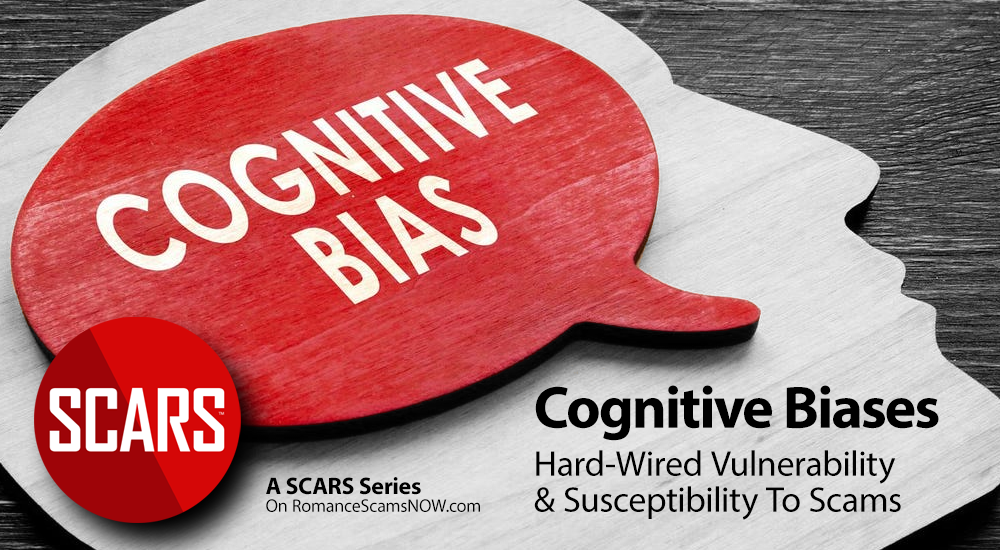

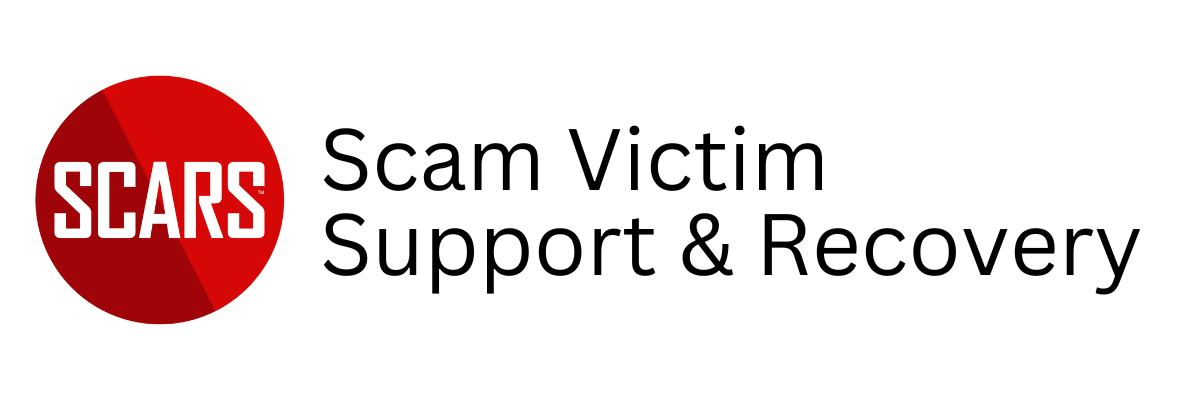

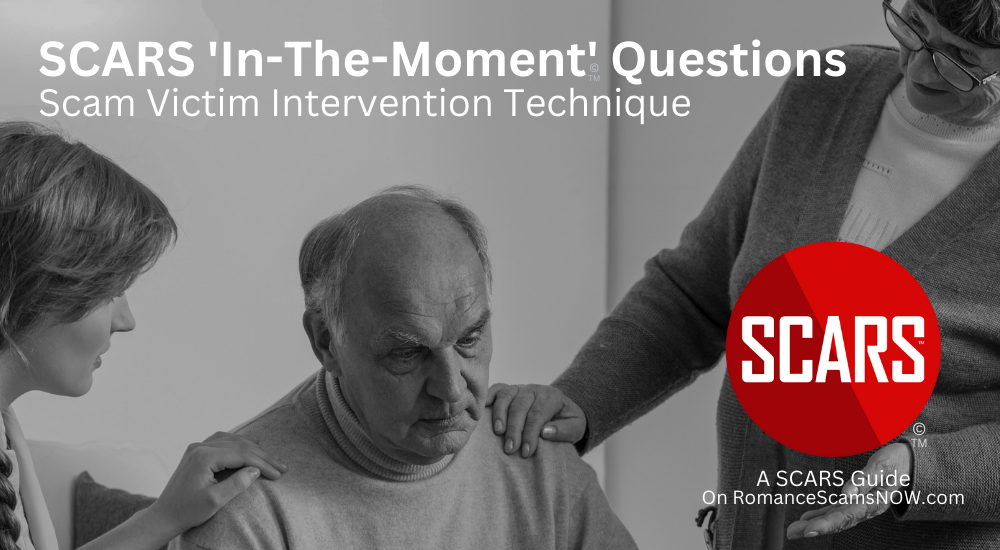
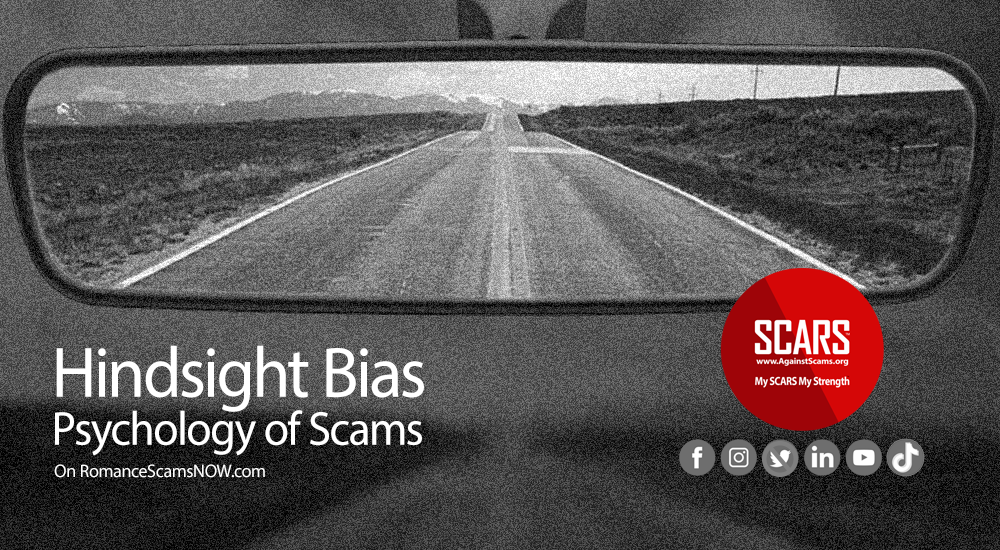
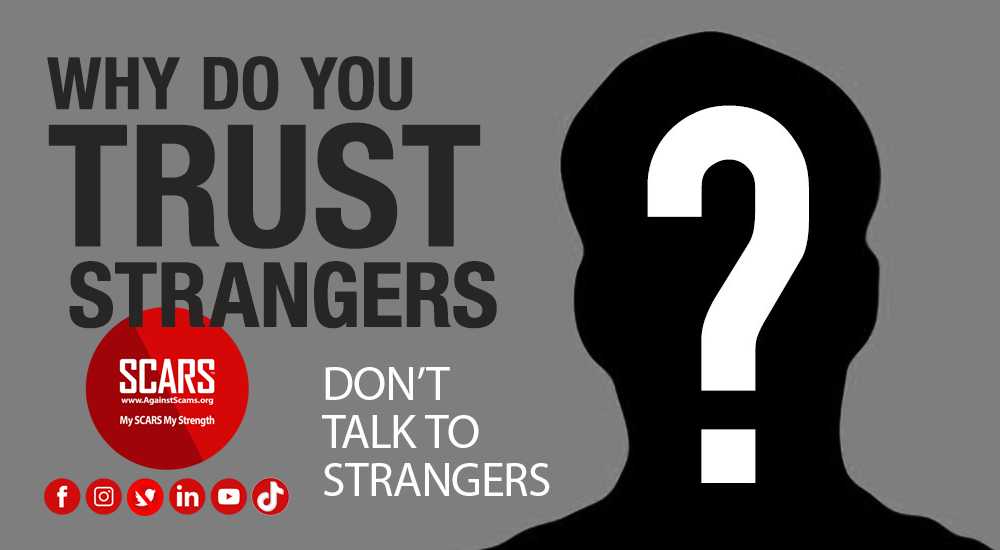

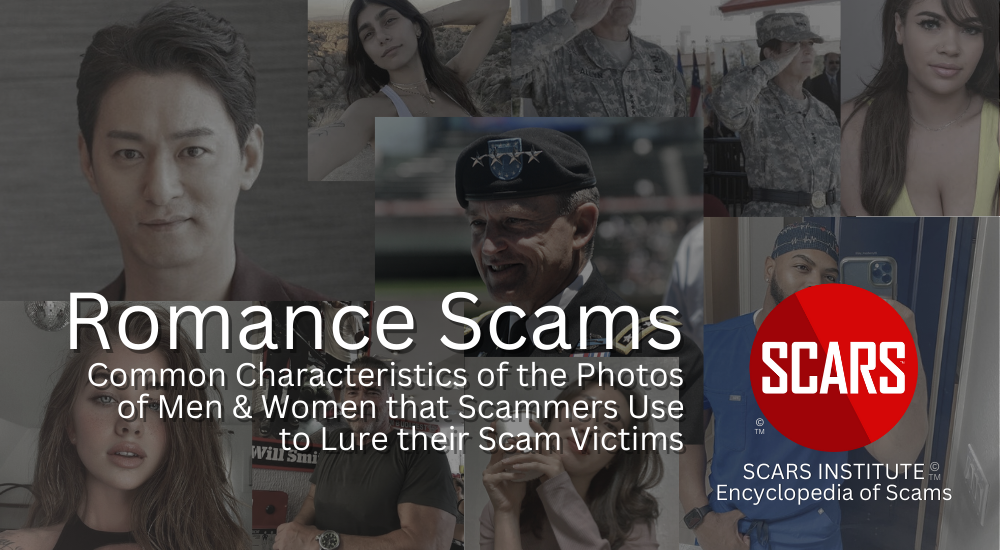










Thank you for your comment. You may receive an email to follow up. We never share your data with marketers.